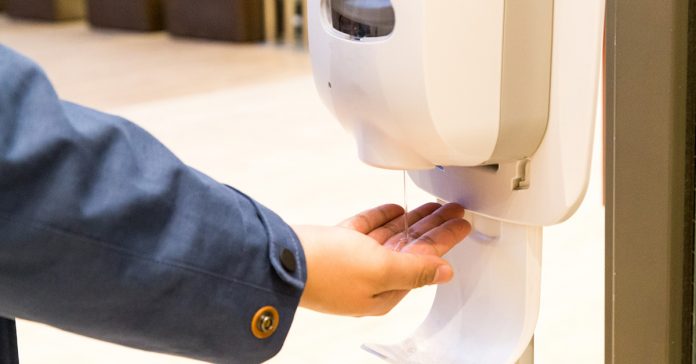Bacteria and virus mutations have become more and more of a concern in many countries.
These “superbugs” are often resistant to a wide array of drugs and continue to evolve in order to develop higher levels of resistance to new methods used to combat them.
Some of these “superbugs”, which are multidrug resistant and can be potentially responsible for a number of different and dangerous diseases and infections, are becoming more of a threat to hospitals.
Scientists and researchers have found that these infections are starting to develop resistance to alcohol-based disinfectants and sanitizers, which are used to prevent their spread and keep them in check in medical facilities.

These researchers conducted a study on these infections, which they have termed a new wave of superbugs, and published their findings in the Science Translational Medicine journal.
The issue in question was published on the 1st of August and brought genetic changes in vancomycin-resistant Enterococcus (VRE) to light, showing how VRE has evolved significantly in specific ways in the past 20 years.
These VRE bugs can result in a string of blood, urinary tract, and wound infections and are incredibly difficult to treat thanks to their resistance levels to many different varieties of antibiotics.
This bug, along with methicillin-resistant Staphylococcus aureus (MRSA), is one of the main reasons behind the strictly followed hygiene procedures conducted in medical institutions all around the world.

Mostly, the methods to combat these bugs are in the form of alcohol-based washes and hand rubs.
According to Tim Stinear, who is a microbiologist working with the Doherty Institute of Australia and also was a co-leader in the study, these alcohol-based products for hand hygiene have been used so often that their use has increased ten times in the last two decades.
This method has been able to successfully keep MRSA and other infections at bay, but unfortunately, VRE infection rates have not dropped.
This is what led researchers to study this particular area of medicine to see if they are resistant to these alcohols and disinfectants.

The study was conducted through the screening of bacterial samples, which are isolated and were collected from the year 1997 to 2015.
They collected 139 of these samples from two hospitals located in Melbourne and were able to study their survival rates against a diluted form of isopropyl alcohol.
Through this, they were able to track resistance levels of these samples over the years.
Results showed that bacteria samples collected from post-2009 showed more resistance to alcohol on average compared with samples from the years 2004 and below.
Researchers then allowed the bacteria to spread through the bottoms of mice cages to determine their infection rates tangibly.
Results for this phase of testing revealed that the samples that were discovered to be more resistant to alcohol had a higher chance of infecting the mice and growing in their guts after all cages were cleaned with isopropyl alcohol wipes.

Although these results are unnerving, a professor of infectious diseases named Paul Johnson, who works with Austin Health in Australia and also was one of the leaders in this study, says that the study’s findings shouldn’t be the cause for a dramatic change in the way disinfectants in hospitals are used.
This is because these hygiene methods continue to work for a variety of other superbugs, especially MRSA.
Meanwhile, Stinear has suggested that creating products with higher concentrations of alcohol may aid in the combating of these superbugs.
He also recommends that hospitals properly isolate those carrying VRE infections and deep cleans their facilities well.
























